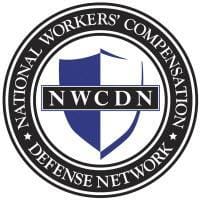In Appeal of Northridge Environmental, LLC, the New Hampshire Supreme Court held that home care services provided to the injured worker by his non-medically trained spouse qualify as a compensable medical expense under New Hampshire’s workers’ compensation law.
In Northridge, the claimant sustained serious injuries at work. After his release from the hospital he required constant care that included cleaning of his wounds and assistance with moving, bathing, and dressing, all of which was provided by his spouse. The claimant sought payment for his spouse’s services from his workers’ compensation carrier, under the theory that but for his spouse’s care he would have needed to hire a medical professional to perform the home care.
The New Hampshire Department of Labor initially denied reimbursement for the spouse’s home care services and the Compensation Appeals Board (CAB) upheld the decision. After an initial appeal to the New Hampshire Supreme Court, the case was remanded to the CAB with instructions to revisit the issue and determine whether, and to what extent, the services provided by the claimant’s wife were reimbursable. On remand, the CAB determined that the claimant was entitled to reimbursement for the services his spouse provided, noting that RSA 281-A:2, XII-b of the workers’ compensation statute “does not exclude a spouse as a home health care provider and should include a spouse as a home health care provider because the workers[‘] compensation statute is a remedial statute and a spouse is not excluded as a provider.” Appeal of Northridge, Case No.: 2014-0776, March 22, 2016, 2. The Court affirmed the decision of the CAB and stated that “the CAB did not err when it decided that the petitioner was entitled to reimbursement for his wife’s services.” Id., 5.
The workers’ compensation carrier also had objected to the CAB’s finding concerning the amount of reimbursement to be provided to the claimant for the services rendered by his wife. After the initial appeal and remand to the CAB, the CAB determined that the claimant should be reimbursed at the rate of $15 an hour, 12 hours a day for the care provided by his wife. The carrier argued there were no time cards or other records available, and that the CAB should not have determined that “twelve hours per day, every day” is “an appropriate reimbursement rate in this instance.” Id., 6. The Court held that it could not “conclude that the CAB erred when it determined that reimbursement for 12 hours per day was reasonable.” Id., 6.
The Court also considered whether the claimant’s attorney was entitled to attorney’s fees. The Court determined the claimant’s attorney had “prevailed” under the definition in RSA 281-A:44, I as the attorney had obtained a remand from the Supreme Court and obtained relief at the remand CAB hearing. Although it “did not award benefits to the petitioner in the earlier appeal, [its] prior decision was an essential step in the process that eventually led to the CAB awarding reimbursement.” Id., 9. As such, the Court determined that the petitioner was entitled to reasonable attorney’s fees and costs incurred in the earlier appeal to the Court.
This ruling potentially exposes employers, carriers, and third party administrators to liability for reimbursement for care provided by the spouses and other non-medically trained individuals who provide care to an injured worker. In Northridge, the carrier had offered to pay for a licensed healthcare provider to perform the in-home services which were prescribed. The claimant declined the offer. If the injured employee requires medically necessary homecare and foregoes a visiting nurse or other medical professional, this case supports the argument that the statute does not preclude reimbursement for a spouse or other non-medically trained individual who provides that care. Furthermore, nothing in the decision appears to limit this holding to a spouse.
The Court’s second consideration – that the claimant’s attorney was due reasonable fees and costs for an earlier appeal when prevailing at the remand hearing – also exposes employers, carriers, and third party administrators to potential liability for payment of attorney’s fees. Claimants’ attorneys will undoubtedly request their fees be paid by carriers for their time before the Supreme Court when they obtain a remand from the Supreme Court that results in a favorable decision before the CAB.
**Bernard & Merrill represents employers, insurance carriers, and third-party administrators in workers’ compensation cases, civil litigation, and insurance defense. The firm has offices in Manchester, NH, and represents clients across the state of New Hampshire.**

/-71.4632800,42.9897500,16/662x410.png?access_token=pk.eyJ1IjoiZmluZGxhdyIsImEiOiJwZGtpQk9zIn0.WLFaIavvqvct9BwQX_HXOA)

